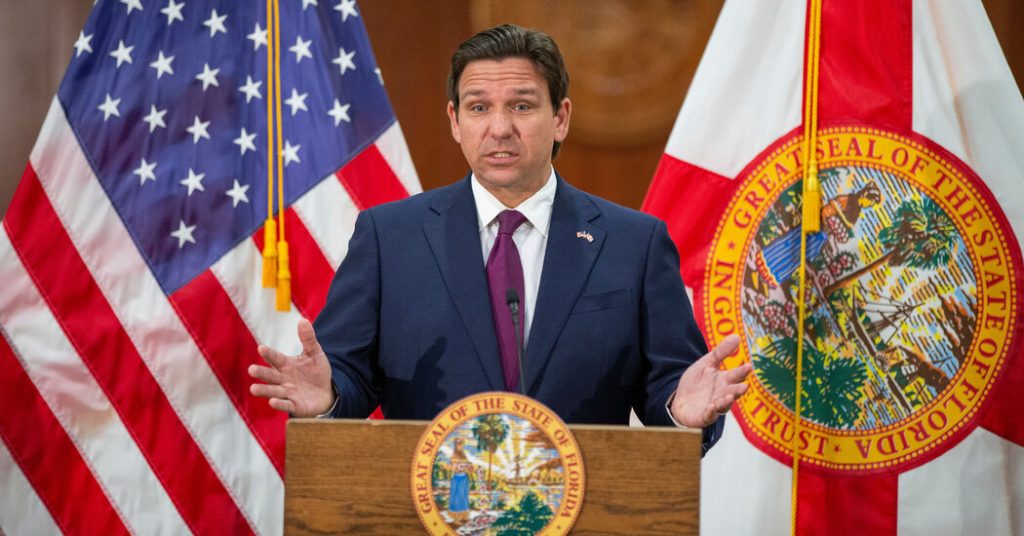On Monday, Florida became the first state to pass a landmark social media bill that effectively bars residents under the age of 14 from holding accounts on platforms like TikTok and Instagram. The new law, signed by Governor Ron DeSantis, is one of the most restrictive measures in the nation aimed at protecting young people from potential mental health and safety risks associated with social media. The statute not only prohibits certain social networks from allowing children under 14 to create accounts, but also requires platforms to terminate accounts that are known or believed to belong to underage users. Additionally, the law mandates that platforms must obtain parental permission before allowing 14- and 15-year-olds to create accounts.
During a press conference, Governor DeSantis praised the new law, stating that it will help parents navigate the challenges of raising children in the digital age. He emphasized that spending all day on electronic devices is not conducive to a healthy upbringing and highlighted the various ways in which social media can harm children. The governor believes that the new bill provides parents with greater ability to protect their children from potential dangers online. Interestingly, Governor DeSantis had previously vetoed a similar bill that would have banned social media accounts for 14- and 15-year-olds, even with parental consent. He argued that the earlier bill would have infringed on parents’ rights to make decisions regarding their children’s online activities.
The new Florida law represents a significant step in addressing growing concerns about the impact of social media on young people. By prohibiting children under the age of 14 from creating accounts on popular platforms, the state aims to shield them from potential risks such as cyberbullying, online predators, and negative influences. Additionally, the requirement for parental consent for 14- and 15-year-olds’ social media accounts reflects a recognition of the need for parental involvement in their children’s online activities. Governor DeSantis’s assertion that social media can harm children underscores the importance of safeguarding young people from harmful content and interactions on social media platforms.
As the first state to implement such a restrictive social media law, Florida’s move is likely to spark debates and discussions about the best ways to protect young people online. While some may applaud the state’s proactive approach to curbing potential risks associated with social media use among minors, others may argue that such measures limit freedom of expression and access to information. As the impact of social media on mental health and well-being continues to be studied, policymakers will need to carefully consider the balance between protecting young people and ensuring their ability to engage in digital spaces. Ultimately, the effectiveness of the new law in safeguarding young Floridians from the potential harms of social media will depend on enforcement, parental involvement, and ongoing dialogue about the role of social media in our society.


